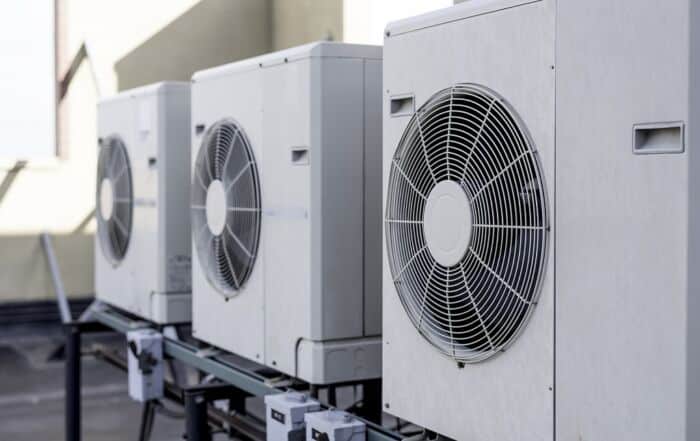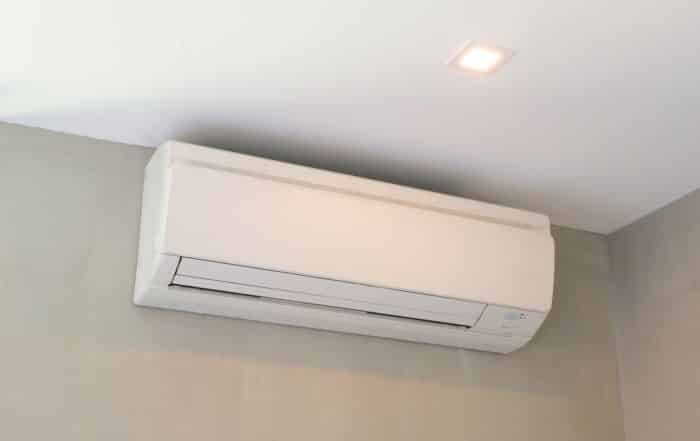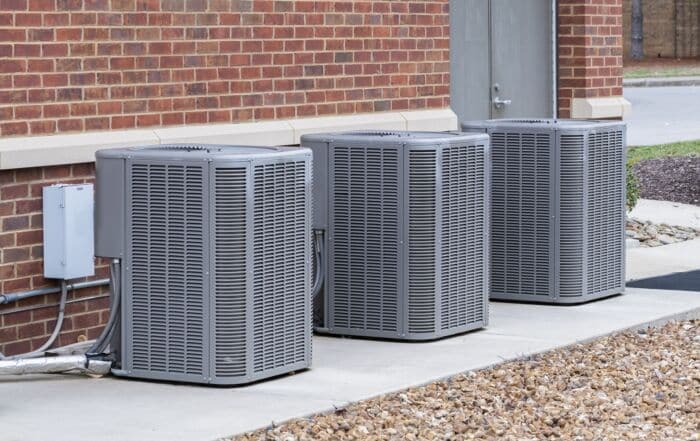Is your central AC system working as efficiently as possible?
Summer is quickly approaching, and if ceiling fans are just not enough to keep you cool, it's time to start thinking about looking at your air conditioning.
A well-functioning air conditioner unit is crucial to keeping your home comfortable all summer long through the heatwave. That's why we're here to provide you with information on the most efficient ways to run your central AC at a comfort level.
Summer in Texas can be brutal and a properly maintained and running air conditioner is key to surviving the heat. It's important to make sure your unit is operating at its peak performance, and the best way to do that is to keep your AC unit running as efficiently as possible to beat the heat and humidity during the season.
Contact us at Dallas Heating and Air Conditioning or click this link now to find out how you can run a central AC efficiently!
Keep Your Central Air Running Efficiently
When air conditioners are working at maximum speed, they are most efficient. While your unit may make more noise while cooling a room from 80 to 75 degrees, operating it at a lower speed all day consumes more energy overall.
To keep your unit running as efficiently as possible, you should only use it when absolutely necessary. Turn off your AC when you leave the house for extended periods of time or open the windows for a cross breeze. Your indoor temperature should be limited to 78 degrees when you are home to save energy.
Consider investing in a programmable thermostat so that you can set your AC to only run when needed to keep your home comfortable all summer long. Excess humidity can make a space feel warmer than it is, so set your thermostat a few degrees lower than you think necessary to account for this.
A modern house is built with insulation to keep the indoor temperature comfortable year-round. Older homes, however, may not have this feature and stick with ceiling fans or window units to keep cool. Compared to the traditional ceiling fans and window units, a central air conditioner keeps us cool in hot weather and maintains a better optimal temperature year-round, while also saving on energy costs with their efficiency in comparison to a window unit AC.
We understand that there are times when you need to use your AC unit more frequently, such as during a heat wave where there's some extra degrees on local temperature. Contact us today to find out which AC unit is best for you and your home.
Is it better to run AC continuously or in intervals?
Many people believe that it's better to run an air conditioner continuously in the house, but this isn't always the case. There are some instances where running your AC in intervals is more efficient and saves you money on energy bills. The type of AC unit you have will determine when it's best to use continuous or intermittent operation.
For example, if your central air conditioning unit has a heat pump, then using continuous operation can save you money because heating and cooling costs less with a heat pump than with an electric furnace.
Intermittent operation can also save you money on your energy bills if your AC unit doesn't have a heat pump. In this instance, it's more efficient to turn your AC off when you're not home and use digital thermostats to turn it back on about 30 minutes before you return.
A programmable thermostat is one of the most efficient ways to run your central AC because it helps you save money and energy by only running when needed. Avoid using heat-generating appliances such as a hair dryer or oven while the AC is running to keep from overworking the system. These heat-producing appliances can cause the AC to work harder and use more energy.
It's also important to invest in a new unit especially if your current one is more than ten years old. Older, less energy-conscious models are much less efficient than newer ones and can end up costing you more money in the long run. Replacing an old air conditioner with new, programmable models can help you save money with better temperature settings and balance between comfort during seasonal changes.
If you're not sure whether continuous or intermittent operation is best for your central AC unit, contact us today and we can help you determine the best way to run your air conditioner.
Is it cheaper to run AC at higher temperature?
The debate over whether it's cheaper to run a central AC at a higher temperature has been going on for years. There are many factors that go into the cost of running an air conditioner, such as how old your unit is, how well insulated your home is and what kind of central AC you have.
But there's two factors that can't be ignored: energy efficiency ratings and seasonal energy efficiency ratio (SEER).
As an AC ages, its energy efficiency rating will decrease, which means it will need more energy to cool your home than when it was new. That would seem like a good thing if you're trying to save money on heating and cooling costs by keeping the house cooler in the summertime and warmer in winter. However, most people don't realize that this strategy often backfires because they end up using their AC unit more often, which negates any savings on the energy bill.
Seasonal energy efficiency ratio (SEER) is a rating that's given to central air conditioners. It measures the cooling output of an AC unit divided by the energy it uses over a season. The higher the SEER rating, the more efficient the AC unit is.
So, if you're trying to save money on your energy bill, it's important to consider both the energy efficiency rating and seasonal energy efficiency ratio when choosing a central air conditioner. A newer AC unit with a high SEER rating will be more expensive to purchase, but it will save you money in the long run because it will use less energy to cool your home.
If you're doubting about running your AC at a higher temperature, contact us today and we can help you figure out the best way to save money on your energy bills help gain additional comfort during summertime.
Contact Your AC Professionals
The best way to make sure your home is cool and comfortable all summer long is by scheduling regular maintenance with a professional technician. Not only will this keep your system running smoothly, but it can also help you save money on your energy bills.
If you're in Texas, be sure to contact Dallas Heating and Air Conditioning for more details about our services. We'll be happy to help you stay cool all summer long!
Call us now at (214) 710-2515 or check out our website at www.dallasheatingac.com for more details on how we can help you find the right AC unit for your home or business!
Important regions in Texas
Texas is the second largest state in the United States, and it is home to a variety of climates. The state is divided into four main regions: East Texas, West Texas, North Texas, and South Texas.
- Prairies and Lakes Region: The Prairies and Lakes region is located in the eastern part of the state. This region is home to a variety of lakes, including Caddo Lake, Lake Texoma, and Toledo Bend Reservoir. The climate in this region is humid subtropical, with hot summers and mild winters. This area includes the metropolitan area of Dallas-Fort Worth.
- Hill Country: The Hill Country is located in the central part of the state, west of the Prairies and Lakes region. This region is characterized by its hilly terrain and abundant wildlife. The climate in this region is also humid subtropical, with hot summers and mild winters. This area includes the metropolitan areas of Austin and San Antonio.
- Big Bend Country: Big Bend Country is located in the western part of the state, bordering Mexico. This region is home to the Big Bend National Park. The climate in this region is semi-arid, with hot summers and cool winters. This area includes the metropolitan areas of El Paso and Odessa.
Related Posts
Exploring Ductless Air Conditioning Systems for Small Spaces
If you’re a homeowner tired of sweating through sweltering summers, a ductless air conditioning [...]
Signs Your Air Conditioning Unit Needs Professional Maintenance
Imagine coming home on a sweltering summer day only to find that your air [...]
Common Misconceptions About Air Conditioning Usage and Costs
Air conditioning units are a staple in many homes, especially during the hot summer [...]


